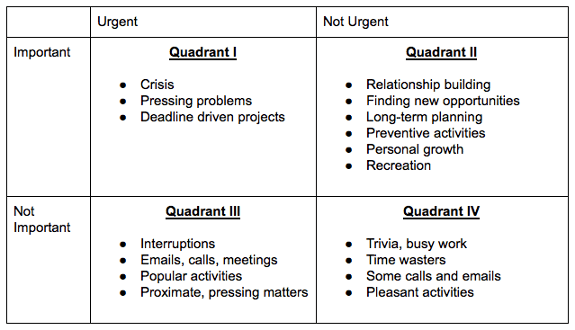My review of The Effective engineer
Recently, I read the book “The Effective Engineer”.
I’ve been truggling with my career for a while. I’ve been working hard, but I don’t see the result I want. I feel like I’m stuck in a rut.
After reading this book, I realized that I’ve been working hard on the wrong things. My work is actually ineffective. This book open my eyes to how to work effectively.
To all the engineers out there, I highly recommend this book. It’s a must-read for anyone who wants to be an effective engineer, especially when AI is start killing jobs.
Part 1. Adopt the Right Mindset
1. Focus on high-leverage things
Leverage = Impact Produced / Time Invested
To increase the leverage, you need to focus on increase your impact and reduce your time invested. Simple math.
1.1. Increase your impact
Ask yourself, “how can I increase the value produced by this activity?”
-
Focus on important work:
- Your work should align with the company’s goals, your team leader’s goals, because things that are important to you may not be important to your team or your company. To align goals, you should have 1-1 meetings with your team leader to understand their goals and how you can help them achieve those goals.
- Impact work is work that brings revenue to the company, or work that helps the company save money. It can be engineering related work, such as building a automated tool, or it can be non-engineering related work, such as bulding an onboarding process to reduce onboarding time.
-
Your time is limited, so you also can increase the impact of each work. For example:
- If you developed a development tool, you can help other teams to integrate your tool. It will expand your impact
- Learn how to sell your work
1.2 Reduce your time invested
Ask yourself, “how can I complete this activity in a shorter amount of time?”
- Learn to protect your time
- Automated repetitive work
- Use tools to help you work more efficiently
2. Optimize for Learning
Learning is important. Spending time learning new things will help you grow, work more effectively and have new ideas.
- Seek work environments conducive to learning
- Find mentors
- During working hours:
- Study code written by the best engineers
- Go through any technical document material available in your company
- Work on diverse projects/prolems
- Outside working hours: Focusing on long term learning
3. Prioritize your work
Your time is limited, so you need to prioritize your work. Regularly.
- Have a to-do list (you should research on how to have a good to-do list)
- Sort by prioritize (we should focus on Quadrant 1 and 2)

- Review work daily/monthly/weekly
Part 2: Execute Effectively
1. Improving speed
Exploring ways to improve your working speed but still maintain the quality of your work. Some examples:
- Building automated tools
- Learn to use AI effectively
- Building POC for reviewing first before implementing
2. Measure your work
If you want to increase your effectiveness as an engineer, you need to track progress. Measurement gives visibility, helps prioritize, and enables smarter decisions.
Why Metrics Matter?
- Without metrics, you operate on assumptions and gut feeling.
- Metrics focus attention and motivate progress.
- They allow teams to spot inefficiencies, track trends, and optimize processes.
- Need metrics to measure the impact of your work.
Choosing the Right Metrics
Not all metrics are equally useful. Good metrics are:
- Actionable – They should clearly guide decisions.
- Understandable – Easy for teams to reason about.
- Aligned – Reflect goals that matter to the team or company.
Build Instrumentation Early
- Set up logging, monitoring, dashboards early in the development cycle.
- Instrument features to measure usage and performance.
- This helps with early feedback, continuous improvement, and data-driven decisions.
Create Feedback Loops
Metrics should drive regular reflection and adjustment.
3. Learn to estimate
I’ve written about this topic here: The Way I Estimate Software (That Actually Works)
Part 3: Build long-term value
3.1 Balance Code Quality and Speed
In the AI era, we can write code faster than ever, but the code quality is not guaranteed if we don’t pay attention to it.
- Building code review system
- Integrating tools to static analysis to protect code quality
- Building effective testing system
- Managing technical debt incrementally …
3.2 Invest in team’s growth
Building a strong team can help you win harder and stronger in a shorter time. Especially, seniority is measured by how much you amplify others, not only yourself.
- Invest in building hiring process to hire good engineers
- Sharing ownership:
- Code review
- Pair programming
- Mentoring
- Post-morterm:
- Should have a meeting to sharing lessons together

